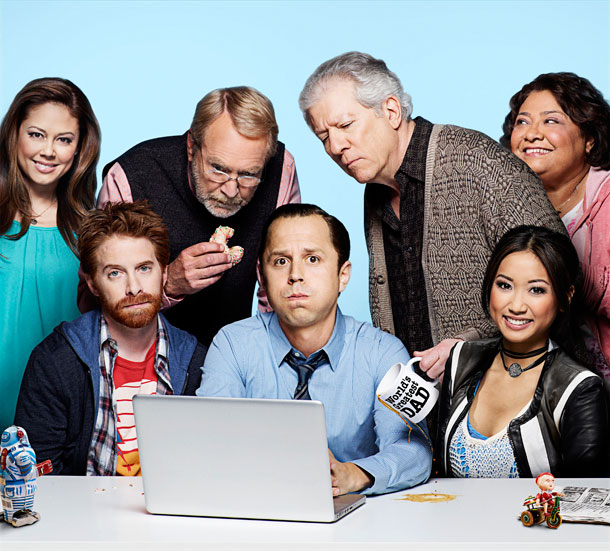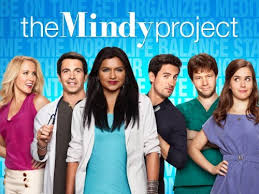
It’s news that cements the broadcast TV philosophy: ratings, not politics, will make or break a show. Mere months after Seth MacFarlane debuted his live-action sitcom, Dads, to overwhelming outcry from critics and Asian Americans for the racism/sexism/poor quality of its series pilot, Dads has been yanked from Fox’s Tuesday comedy line-up. And it wasn’t the backlash that did Dads in; it was poor ratings. Recent numbers show Dads scored a mere 1.3 on the Neilsen rating scale, which is pretty abysmal for a sitcom with its timeslot.
At a time when there are growing questions within the Asian American blogosphere as to whether or not we’ve become too reactionary to the “small stuff” — YouTube videos, for example — it’s important to take heed here. While anti-Asian racism in primetime TV shouldn’t go completely unchallenged, it’s worth remembering that our outcry (or indeed, similar outrage from any marginalized minority) matters less to TV executives than market share. Thus, any political effort launched by our community that could produce as a consequence elevated interest in a show (even in the form of morbid curiousity) must be considered in the context of whether it might help, rather than hinder the media in question.
Meanwhile, we must also recognize that all energy expended towards speaking out against a YouTube video of limited consequence like “Chinese Food” is energy not spent working towards widespread social problems like health and economic disparities, and other very tangible obstacles to equal Asian American achievement. This was why several months ago, I urged Asian American activists to temper the attention focused towards Dads: the problem with Seth MacFarlane was that we were paying attention to him.
And, indeed, with reduced attention, MacFarlane actually did go away.
It’s important to note that this philosophy is not applicable to most issues involved in the fight for social justice, but I would argue is particularly relevant when dealing with media — particularly major broadcast television — where ratings are key. In most social justice campaigns, raising awareness is a key priority, where all attention is beneficial. But when dollars are made with increased eyeball number, a different strategy must be employed — one where an appropriate response can be published that does not needlessly drive viewership to the problematic media.
Furthermore, because television is dependent so heavily on ratings, I would further argue that this is a specific arena where positive attention can have as profound an impact as negative attention. Consider the simultaneous news today that Fox also — for reasons of low viewership — put on hiatus ‘The Mindy Project‘, a relatively popular and generally critically-acclaimed show starring Mindy Kaling in the first-ever sitcom starring a South Asian woman.

I haven’t watched ‘The Mindy Project‘ (or ‘Dads‘), so I can’t speak to its programming quality, but given the relative landmark status of ‘The Mindy Project‘ for Asian Americans, perhaps this was one area where all the energy focused on dismantling ‘Dads‘ could have been better used promoting the living heck out of ‘The Mindy Project‘ and make it a show so popular Fox executives wouldn’t think of taking it off-air?
The Internet fosters reactionary politics, and in the era of click-bait blogging, it’s not surprising that more attention is placed on hurtful, if arguably meaningless, YouTube racism than on mental health issues. Rage is a more powerful click-through motivator than agreement.
But, we are the community that used the Internet to organize a coordinated response against Abercrombie & Fitch. Before that, we were the community who banded together to advocate against the murderers of Vincent Chin. Perhaps it’s a time for Asian Americans to remember our tactical roots when it comes to online activism, and rather than focus heavily on the “small stuff”, focus strategically on it.
